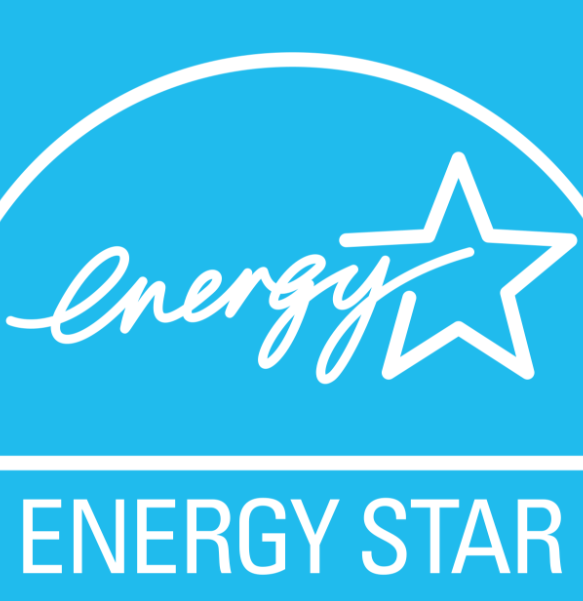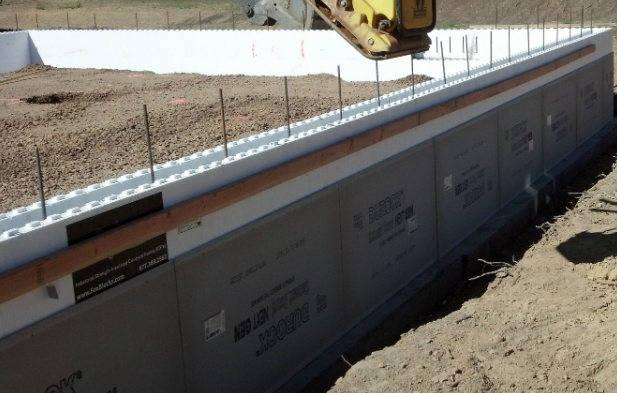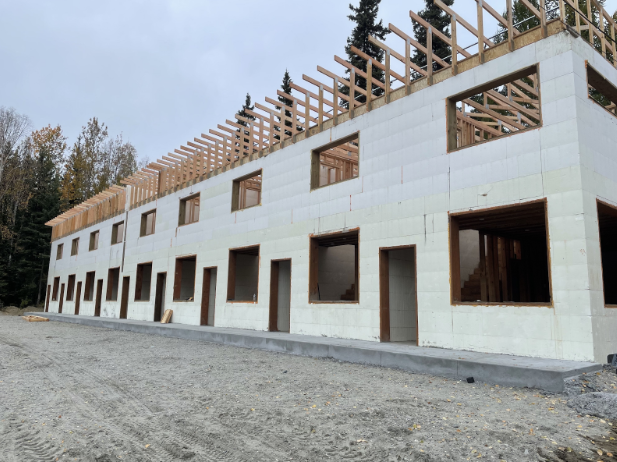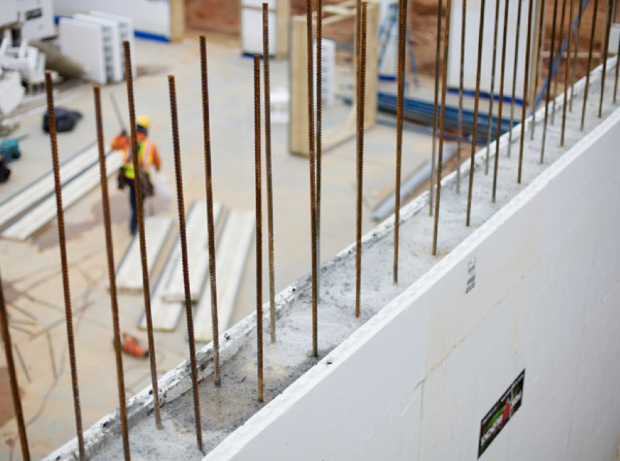
Understanding the ENERGY STAR Rating System for Better Efficiency

Energy efficiency is a cornerstone of modern construction that drives both environmental and economic benefits. The ENERGY STAR® program, established by the U.S. Environmental Protection Agency (EPA) and the Department of Energy (DOE), plays a pivotal role in promoting energy-efficient products and buildings.
This article delves into what ENERGY STAR is, how its rating system works, the benefits of ENERGY STAR appliances, and the significant role of Insulated Concrete Forms (ICF) in achieving these coveted ratings.
What is ENERGY STAR®?

ENERGY STAR® is a government-backed symbol for energy efficiency that is widely recognized for its credibility and unbiased information. Products and buildings that earn the ENERGY STAR label meet stringent energy performance standards set by the EPA or DOE by ensuring that they use less energy and save consumers money while also protecting the environment. The program began in 1992 and has since become a hallmark of energy-efficient products and practices.
ENERGY STAR Rating System
The ENERGY STAR rating system evaluates products based on their energy consumption compared to standard models. To qualify for the ENERGY STAR label, products must demonstrate significant energy savings without compromising performance or quality.
For example, ENERGY STAR certified refrigerators are at least 15% more efficient than non-certified models, and certified light bulbs use 70-90% less energy than traditional incandescent bulbs.
Key Criteria for ENERGY STAR Certification
Significant energy savings compared to standard products
Proven performance through independent testing
Ongoing compliance to ensure continuous energy efficiency
ENERGY STAR certified products and energy-efficient building practices, like Insulated Concrete Forms (ICFs), all contribute to a more sustainable future.
Benefits of ENERGY STAR Appliances
ENERGY STAR certified appliances offer multiple benefits:
Cost Savings
Reduced energy consumption leads to lower utility bills. For instance, ENERGY STAR certified washing machines can save the average household $45 annually on utility bills.
Environmental Impact
Using less energy reduces greenhouse gas emissions to help mitigate climate change. ENERGY STAR certified products have helped save billions of kilowatt-hours of electricity and significantly reduced carbon dioxide emissions.
Enhanced Performance
Certified products often come with advanced features and better performance standards. For example, ENERGY STAR certified windows reduce leaks and drafts, for improved home comfort.
Difference Between ENERGY STAR Certified and Qualified Products
There is a distinction between ENERGY STAR certified and ENERGY STAR qualified products. Certified products have undergone rigorous testing and meet the strict standards set by the EPA or DOE. Qualified products, while also efficient, may not have completed the full certification process. Understanding this distinction will help consumers make informed choices about energy-efficient purchases.
Insulated Concrete Forms (ICFs) and ENERGY STAR Ratings

ICF is revolutionizing the construction industry by enhancing energy efficiency in buildings. These forms, usually made from expanded polystyrene (EPS), are used to construct walls that provide superior insulation compared to traditional wood-frame structures.
Energy Efficiency of ICFs
Thermal Mass
ICF walls have a high thermal mass, which helps stabilize indoor temperatures by absorbing and storing heat. This reduces the need for heating and cooling, thereby lowering energy consumption.
Thermal Bridging
ICFs provide a double layer of continuous insulation to a wall assembly and eliminate thermal bridging. Wood framed walls have thermal bridging at each stud which reduces the overall thermal efficiency of the wall assembly.
Insulation Value
ICFs offer higher insulation values (R-values) than conventional materials. Typical ICF walls have an R-value of R-23+, compared to R-15+ for wood for wood-frame walls. This superior insulation minimizes heat loss for greater energy savings.
Practical Applications and Incentives
Builders and homeowners who use ENERGY STAR certified products and materials like ICF can benefit from various federal and state incentives. These incentives include tax credits, rebates, and energy-efficient mortgages, improved appraisals, which can make energy-efficient construction more affordable.
Federal Incentives
Tax Credits
The Inflation Reduction Act of 2022 provides federal tax credits for energy-efficient home improvements. Homeowners can receive up to $3,200 annually for energy-efficient upgrades, including up to $2,000 for heat pumps and biomass stoves, and up to $1,200 for other improvements such as insulation, windows, doors, and home energy audits. The $1,200 limit includes $250 per door (up to $500 total for doors) and $600 for windows.
Renewable Energy Credits
Homes incorporating renewable energy systems like solar, wind, geothermal, and fuel cells may qualify for a 30% income tax credit through the Residential Clean Energy Credit, applicable through 2032.
Utility Incentives
Rebates and Discounts
Many utility companies offer rebates and discounts on energy-efficient appliances and construction materials. For instance, Pennsylvania's Act 129 requires electric distribution companies to provide incentives for energy-efficient construction.
ENERGY STAR in Action: Case Studies
Residential Example

The Hooper Avenue Apartments in Fairbanks, Alaska, constructed with Fox Blocks ICF, exemplifies superior energy efficiency in residential buildings. This project involved building townhouse-style multi-family apartments using Fox Blocks ICF for all exterior walls, to achieve a 6-star plus energy rating, the highest in Alaska. The ICF walls provide exceptional insulation, which has resulted in a 30% reduction in energy consumption compared to traditional construction methods.
Commercial Example

Fox Blocks' involvement in the Discovery Elementary School project in Arlington, Virginia highlights their impact on commercial energy efficiency. Discovery Elementary is one of only four schools in the nation to receive a zero energy certification. This project utilized Fox Blocks ICFs to create a building envelope with superior thermal insulation and air tightness which dramatically reduced energy consumption.
Achieve Superior ENERGY STAR Ratings with Fox Blocks Construction
Innovation in construction is essential for achieving superior ENERGY STAR ratings, sustainability, efficiency, and resilience. Fox Blocks leads this transformation with a cutting-edge approach enabling Fox Blocks homes to achieve the highest Energy Star Ratings, that align with the changing needs of that aligns with the needs of modern construction. Utilizing advanced materials like Expanded Polystyrene (EPS) and injection-molded plastic ties, we offer an eco-friendly, sustainable construction process that reduces environmental impact while also enhancing energy performance.
Contact our experts today for more information!